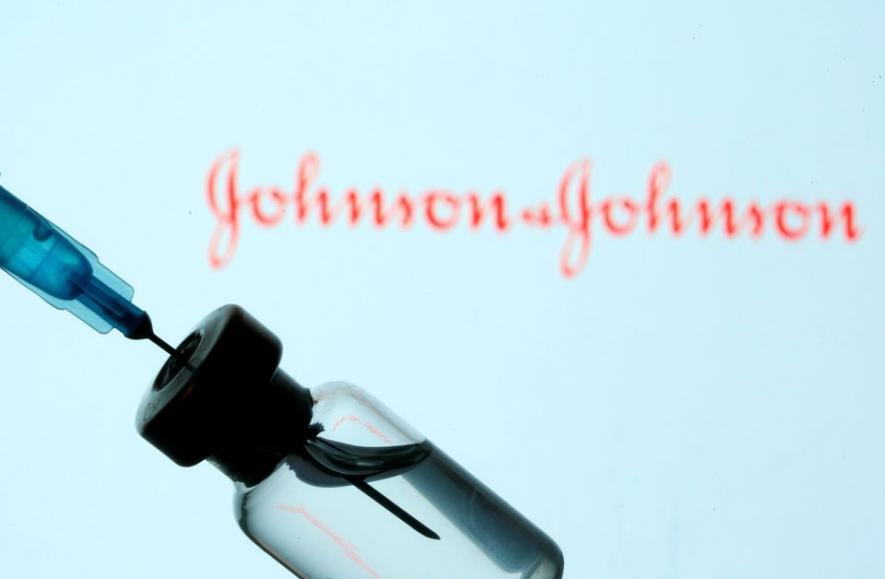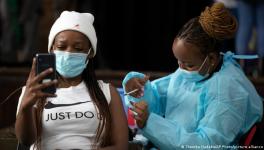Johnson & Johnson’s HIV Vaccine Trial Results Disappointing

Image Courtesy: Reuters
Scientists have spent decades in search of an effective vaccine against the Human Immunodeficiency Virus (HIV) which causes AIDS. The trial results of an HIV vaccine candidate, developed by Johnson & Johnson (J&J), have been deemed as 'disappointing'. Trials were conducted in South Africa and four other neighbouring countries.
Termed as ‘Imbokodo’, the trial of the J&J vaccine had begun in 2017, involving 2600 women, with an aim to compare the efficacy of the vaccine candidate with a placebo. The company announced the trial results on August 31.
Results revealed that Imbokodo found 63 infections in the placebo group, while 51 of the participants received the vaccine, giving the vaccine an insignificant efficacy of 25.2%. The range of efficacy means that the vaccine candidate is rendered ineffective against HIV. The confidence level in the result too did not reach any statistical significance. However, the trial reported no safety issues. The J&J HIV vaccine received support from the NIAID (National Institute of Allergy and Infectious Diseases), USA and Bill and Melinda Gates Foundation.
Glenda Gray, head of the South African Medical Research Council, who is overseeing the protocol of the trial, was quoted in a statement to Science as saying, “We have to fundamentally relook at what we’re doing.”
Gray also emphasized that although the results emanated from Imbokodo seems disappointing, they are better than the other two previous trials she had helped on. “Each failed trial tells us something. Unlike the others, the study revealed glimmers of efficacy, which could reveal protective immune responses and allow researchers to design a better vaccine for the future, ” Gray said.
However, despite the failures of the Imbokodo, a second efficacy trial of a similar vaccine will continue in a different population, according to Paul Stoffels, the chief scientific officer of Johnson & Johnson. The trial named ‘Mosaico’ had started in Europe and the Americas in 2019 and "involves 3800 transgender people and men who sex with men." Mosaico has full enrolment and would evaluate the efficacy of the vaccine with an improved form in providing protection against HIV virus transmitting through the rectal route rather than the vaginal route. Stoffels hinted that despite some failures, J&J is not going to give up very soon.
Both the Imbokodo and Mosaico trials have a total of four doses of two different shots. The first shot uses the same platform as J&J’s COVID-19 vaccine, which is an adenovirus vector. The adenovirus vector is harmless and in the case of an HIV vaccine, it carries four genes from the HIV virus into human cells. These genes have been engineered in such a fashion that they can produce HIV proteins that are sufficient to invoke an immune response against the virus. The scientist behind the vaccine concept believes that the immune response (body’s defence response against any foreign object) would be broad enough to provide protection against different variants of the HIV virus. The second shot comprises a genetically engineered form of a protein found on the surface of the HIV virus.
NIAID's HIV vaccine trials network has sponsored both of these trials. Lawrence Corey, co-leader of the vaccine trial network of NIAID, and also a vaccine researcher at Fred Hutchinson Cancer Research Centre, USA, noted that the J&J vaccine strategy overwhelmingly depends on triggering T cells (a type of cell involved with the immune system of the body), while other groups have relied on producing neutralizing antibodies (proteins that fight against any foreign object inside the body) which can prevent the virus from even infecting human cells. Corey said that if the T cell strategy fails in future then there will be a need to shift totally into neutralizing antibodies.
Get the latest reports & analysis with people's perspective on Protests, movements & deep analytical videos, discussions of the current affairs in your Telegram app. Subscribe to NewsClick's Telegram channel & get Real-Time updates on stories, as they get published on our website.























